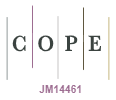Evaluation in arts higher education: the emphasis on the process and the education by the sensitive
DOI:
https://doi.org/10.5585/eccos.n55.18872Keywords:
Higher education, Arts assessment, Pedagogical practicesAbstract
The article deals with the problem arising from the subjectivity inherent to the evaluations carried out in the ateliers of higher education art courses. It seeks to contribute to research in the area by identifying possible paths that lead to the adoption of criteria that enable the balance between knowledge acquisition and education by the sensitive. It is based on an approach of teaching as a whole, in the desire to include courses that are responsible for the qualification of teachers for elementary education; Descartes, Morin, Libâneo and Luckesi support this introductory part. With regard to evaluation in higher education, the need for integral education is highlighted, focused on encouraging research and based on the relationship between specificities of the area and affective / emotional balance; Masseto, Vieira and De Sordi guide this segment of the investigation. In the topic that deals with evaluation in the art courses, the presence of the artist-teacher and the emphasis given to the procedural aspect of the evaluation are highlighted; with Garcia, Feyerabend, Tourinho and Almeida, the process of knowledge construction and the sensitive view of the student's production are valued. Throughout the text, the need to transform traditional assessment models is emphasized. It is observed, in this research on evaluation in higher art courses, that attention is needed both in the process and in the final product, and that evaluation is conceived upon criteria that match subjective and objective issues.
Downloads
References
ALMEIDA, Célia Maria de Castro. Ser artista, ser professor: razões e paixões do ofício. São Paulo: UNESP, 2009.
FEYERABEND, Paul. Contra o método. 2. ed. São Paulo: UNESP, 2011.
GARCIA, Joe. Avaliação e aprendizagem na educação superior. Estudos em Avaliação Educacional, São Paulo, v. 20, n. 43, p. 201-213, maio/ago. 2009.
LIBÂNEO, José Carlos. Didática. São Paulo: Cortez. 2006.
LUCKESI, Cipriano Carlos. Avaliação da aprendizagem escolar: estudos e proposições. 9. ed. São Paulo: Cortez, 1999.
MASETTO, Marcos Tarciso. Competência pedagógica do professor universitário. 2. ed. São Paulo: Summus, 2012.
MITRE, Sandra Minardi et al. Metodologias ativas de ensino-aprendizagem na formação profissional em saúde: debates atuais. Revista Ciência & Saúde Coletiva, Rio de Janeiro, v. 13, n. 2, p. 2133-2144, 2008.
MORIN, EDGAR. Os sete saberes necessários para a educação do futuro. Tradução: Catarina Eleonora F. da silva e Jeanne Sawaya. 2 ed. São Paulo: Cortez: UNESCO, 2011.
READ, Herbert. A Educação pela Arte. 2. ed. São Paulo: Martins Fontes, 2013.
TOURINHO, Irene. Transformações no ensino da arte: algumas questões para uma reflexão conjunta. In: BARBOSA, Ana Mae (org.). Inquietações e mudanças no ensino da arte. São Paulo: Cortez, 2002. p. 28-36.
TOURINHO, Irene. Retomando um tema delicado: avaliação e ensino de arte. In: ENCONTRO DA ASSOCIAÇÃO NACIONAL DE PESQUISADORES EM ARTES PLÁSTICAS - ANPAP, 19., 2010. Cachoeira. Anais.... Salvador: EDUFBA, 2010. p. 2094-2106.
VIEIRA, Maria Lourdes; De SORDI, Mara Regina Lemes. Possibilidades e limites do uso do Portfólio no trabalho pedagógico no ensino superior. Revista E-curriculum, São Paulo, v. 8, n. 1, p. 1-27, abr. 2012.
Downloads
Published
How to Cite
Issue
Section
License
Copyright (c) 2020 EccoS – Revista Científica

This work is licensed under a Creative Commons Attribution-NonCommercial-ShareAlike 4.0 International License.
- Abstract 439
- PDF (Português (Brasil)) 341






